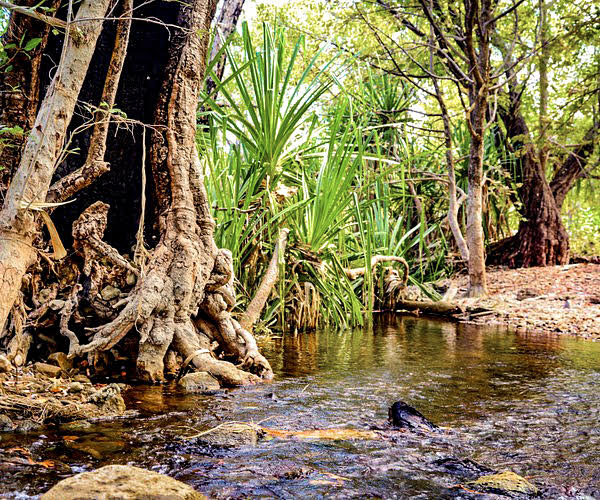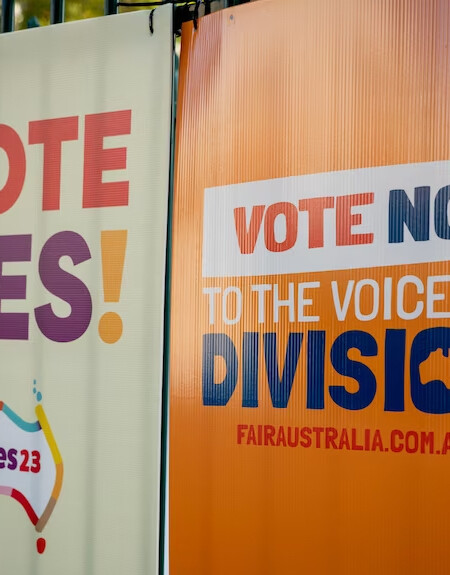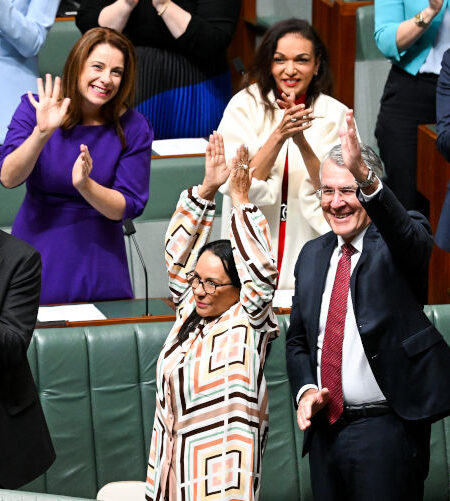On 13 March 2019, the High Court handed down the landmark decision of Northern Territory v Mr A. Griffiths (deceased) and Lorraine Jones on behalf of the Ngaliwurru and Nungali Peoples [2019] HCA 7 (‘Griffiths’). The Court awarded a total of $2.5m in compensation for both economic and cultural loss, including interest. The case has been called ‘the most significant… since Mabo’, and is the first time the High Court has ruled on compensation for the extinguishment of native title.
It has been over two years now since the High Court of Australia advanced the evolution of native title law in a decision that will inform how First Nations peoples are compensated for an immense loss at the hand of ongoing colonisation. The decision is being applied and tested currently, both within and outside of the courts.
Context
The decision marked the end of an 8 year legal fight for compensation by the Ngaliwurru and Nungali peoples who have maintained a strong connection to Timber Creek and the Makalamayi area, between Katherine and Kununnura in the Northern Territory (‘NT’).
The Ngaliwurru and Nungali peoples native title rights over the area were won in 2006 by the late Alan Griffiths, ‘one of the great Kimberley First Nations leaders’ and a senior lawman. Rights over the area allowed traditional owners to travel over and share traditional resources from the land, but not to exclude others, which the court considered to be non-exclusive rights. Despite this finding, Alan Griffiths emphasised that the responsibility to Country remained, telling the court
I got all those sites, all that Dreaming, I have to make sure people don’t make a mess of it.
Under the native title system, these rights can be ‘extinguished’ by acts of governments, meaning that the rights no longer exist under settler law. In this case, the NT Government was responsible for 53 acts which had this effect, such as building roads and infrastructure over the area, including over sacred sites and Dreamings. Extinguishment has been described as reinstating Terra Nullius and almost 30 years on from Mabo has led to “devastation”. Compensation claims are one way in which traditional owner groups “have been trying to claw back” from the loss of their rights.
The compensation claim in this case was brought by Alan’s son Chris Griffiths and Lorraine Jones, both native title holders, representing five clan groups from the Nungali and Ngaliwurru peoples. Chris Griffiths maintains that despite the finding of ‘extinguishment’ under settler law, culture has not been removed from the land: “You can’t remove the culture from the country it belonged to… You can share it but they don’t own it”.
The decision
This claim for compensation was the first time that the availability and measure of compensation under the NTA had been fully considered by the High Court. The Court awarded compensation for both economic and cultural loss.
In a joint judgment, the majority, (including Kiefel CJ, Bell, Keane, Nettle and Gordon JJ) found that:
- The economic value of native title rights is calculated in comparison with the value of freehold land, in this case 50% of freehold value or $320,250;
- Simple interest is payable on compensation, calculated from the time of extinguishment, in this case $910,000; and
- Cultural loss is to be calculated on a case by case basis, to ‘translate’ the ‘spiritual hurt’ and assign an amount that would fit with community expectations, in this case $1.3m.
Following the decision, Chris Griffiths said that it goes some way to recognise and compensate for the “damage colonisation has done to our Country, law and ceremony… our history and our pain”.
What does this mean for native title and compensation claims?
The Court’s decision opens up potential and possibilities for Aboriginal and Torres Strait Islander peoples and governments, with native title determinations now sitting at over 500, compensation claims are increasing. Separate claims including those brought on behalf of the Yindjibarndi, Gumatj and Tjiwarl peoples, will likely rely on, develop and in some cases extend the decision in Griffiths, with some taking on mining interests.
This potential also extends beyond the framework of Native Title, and the decision will be considered in the negotiation of policies, treaties and settlements. State and Territory governments are streamlining approaches to compensation now that there is some guidance from the High Court, which will inform settlements outside the courts. A national compensation framework is yet to be implemented, but strategy is being developed. This is being taken further in Treaty negotiations around the country, most notably in Victoria, where the Griffiths decision has been ‘embraced’ and is guiding compensation discussions, particularly in terms of cultural loss.
Limitations of the decision
It is encouraging to see the greater certainty and clarity around the calculation and award of compensation since Griffiths. Despite this, the decision was made according to the terms of the Native Title Act, “a white fella legal construct” and so relies largely on western ideas of value and property ownership. This fits in to the broader issues with the native title that were briefly acknowledged but not addressed in the decision, such as the burden on groups to prove continuous cultural connection. This impacts particularly on groups who may not have access to resources or have had cultural connection deliberately and systematically chipped away at by the settler state. As Eddie Cubillo notes there is “racism inherent in the judgement”, when decided within this limiting system which forces claimants to “undergo a torturous regime” to so often see rights, interests and opportunity denied.
It is promising, however, that shortcomings in the decision may be addressed through direct negotiations and treaties, moving beyond the confines of native title. Genuine community consultation and control is key to ensuring the best outcomes for Traditional owners in this context, rather than allowing native title barriers to limit compensation available.
Moving forward
The process for determining compensation claims is now clearer and more accessible following Griffiths, and many compensation claims are progressing. For the Nungali and Ngaliwurru peoples, the award of compensation can go a little way to addressing the injustices suffered. As Chris Griffiths said following the decision, it provides some recognition of, and compensation for, the “loss and hurt caused by damage to country.”
A finding of compensation for cultural loss particularly signals an important acknowledgement of the value of cultural connection to land and place. The native title framework remains limited by settler legal concepts of value, but it is promising that outside of the courts, and outside of the native title framework, changes are afoot. Griffiths has been closely examined by governments, negotiators and traditional owners. Approaches to compensation are being streamlined and new agreements and settlements are emerging.
For Chris Griffiths the decision was “a small step in the long continuing journey to set things right”. More work is to be done to ensure the best outcomes for traditional owner groups, but Griffiths and the developments following present an opportunity and immense potential for both native title and beyond.




